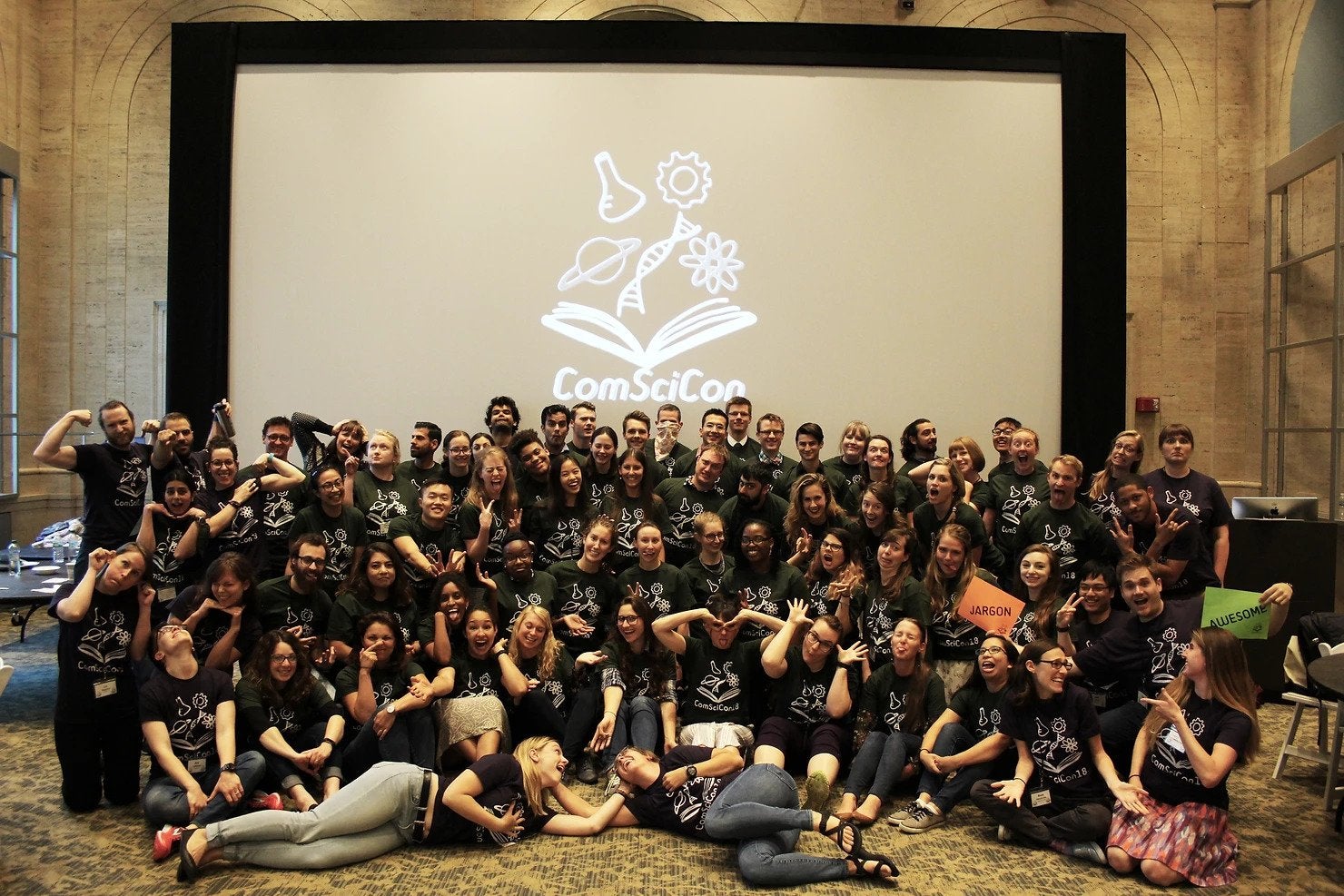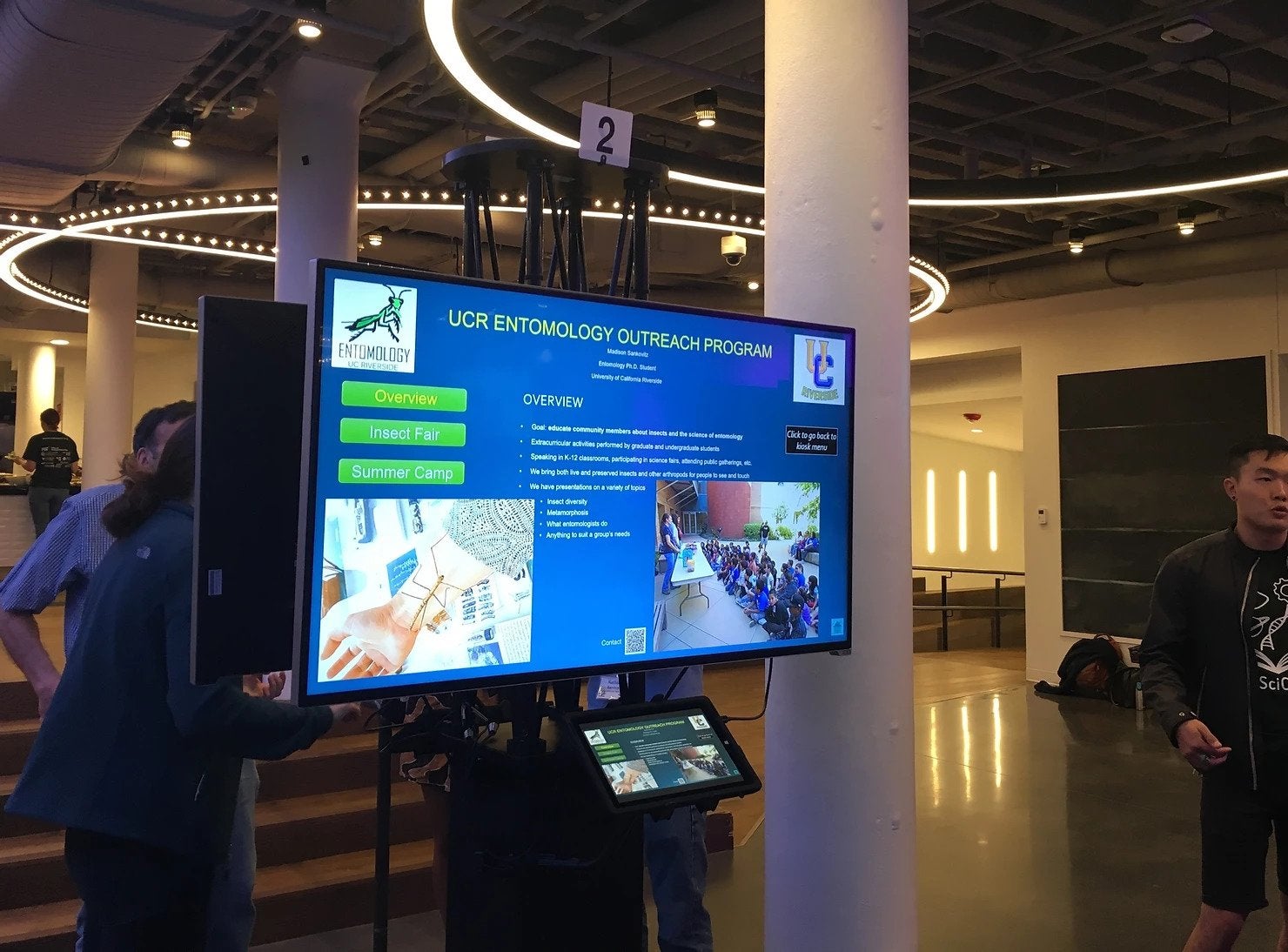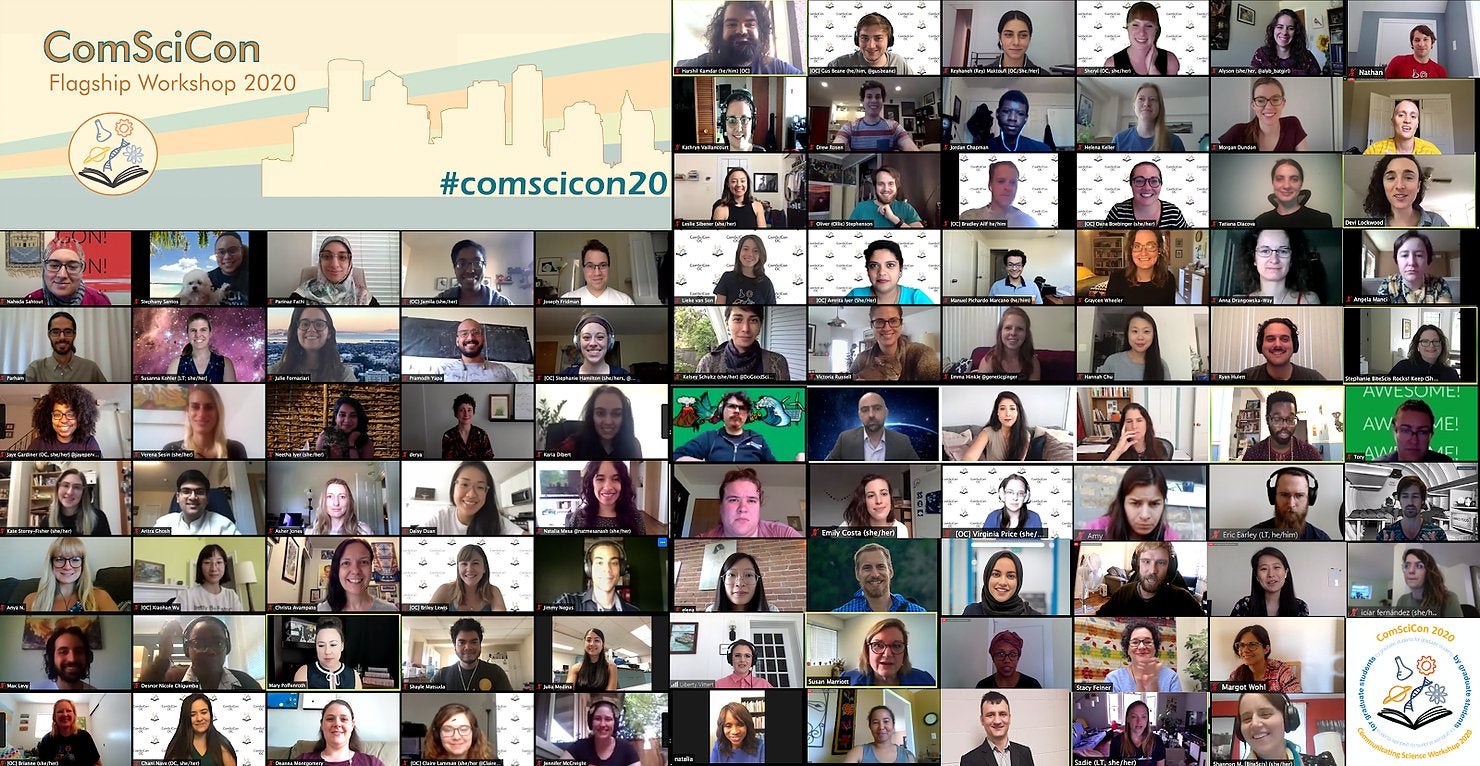Our experience at ComSciCon: the perspectives of two entomology Ph.D. students
By Hannah Chu and Madison Sankovitz
ComSciCon is a workshop for graduate students (and organized by graduate students) about communicating complex and technical scientific concepts. ComSciCon attendees interact with professional communicators and build lasting networks with graduate students in science and engineering fields from across the US and Canada. There is one flagship workshop per year and multiple chapter workshops all over the continent. Entomology Ph.D. students Hannah Chu and Madison Sankovitz attended the flagship workshop in different years and share their experiences here!
Madison Sankovitz’s experience at ComSciCon 2018
“Science is chocolate. Science is not broccoli. We don’t need to trick people into liking it,” urges Liz Neeley, Executive Director of The Story Collider and keynote speaker for ComSciCon 2018. For two busy days in downtown Boston, graduate students from all fields of science converged for a workshop on communicating science centered around the question: how can we effectively communicate science to maximize its impact on our intended audience? I was among them. At the time, I was a first-year Ph.D. student in entomology. I first heard about the conference through R’Grad Weekly, a newsletter for UCR graduate students containing information about workshops, events, and opportunities. I applied to attend the conference to gain new science communication skills and bring them back to UCR. I also wanted to share my department’s outreach efforts.
ComSciCon 2018 began with a panel on creative storytelling that included a graphic novel author, a television producer, and a graphic designer. They discussed the importance of relating our work to our audience’s experiences through emotion. I was immediately struck by the diversity of creative careers that contribute to the communication of science in crucial ways. Until this point in my life, I had taken for granted the high quantity and quality of science that I encountered in my day-to-day life. During this panel, I realized that many talented, intelligent, and creative people put loads of work into crafting science narratives daily. Afterward, we had a chance to apply the skills we learned from the panel during a storytelling workshop.
A high point of the conference was workshopping our own scientific writing pieces with an expert. They gave us valuable advice on pitching our articles for publication. I learned about Massive Science, a content and media company dedicated to helping scientists share stories about their work and lives. They envision a more informed, rational, and curious society. During ComSciCon 2018, I worked on an article about carbon sequestration by concrete buildings that Massive later published, and I have continued to write for them.
The conference finished with a poster session showcasing our communication efforts at our home institutions. I was excited to present an ePoster highlighting the Entomology Outreach Program’s work and encouraging other institutions to consider developing their own outreach programs. Networking with my peers during this session was an informative and inspiring experience. I learned about students who 3D-print their research, make videos to teach children fundamental science concepts, and bring their research to rural community centers to share with the public. I maintained some of these connections and organized the inaugural ComSciCon Entomology at the Entomology 2019 conference, along with a handful of other ComSciCon 2018 attendees. We are also in the process of organizing ComSciCon Los Angeles, hopefully coming in 2021!
Hannah Chu’s experience at ComSciCon 2020
Attending ComSciCon 2020 amidst the COVID pandemic, Black Lives Matter protests, and stories of #BlackintheIvory, emphasized the need for science communicators to be aware and conscious of the many societal shortcomings in science. As with most Ph.D. students who are not Black, Indigenous, or a Person of Color, I circumvented much of the systemic racism stemming from the academic world. The tragic stories of discrimination mixed in with misinformed opinions and data about the global pandemic took over my Twitter feed. With this kind of social climate, the organizers put together a diverse panel that opened the door to both emerging and seasoned science communicators for conversations surrounding these sensitive topics.
A panel on “Science Communication in the Era of COVID-19” highlighted the need for scientists to gain trust in their communities, empower people with information and stress that science is not always certain. The panelists highlighted the importance of social psychology, a discipline that many science communicators tend to neglect. Samantha Yammine emphasized the idea that “we [scientists] can't stand in our ivory tower and tell people, 'You have to listen to us.'" Sometimes, we are not the best person to communicate an idea to someone because we have not gained trust in that particular community. With this sentiment, the conversation shifted to the lack of diverse narratives in science, which leads to a bottleneck when talking to certain populations. Historically, white men have written textbooks, which skews the perspective of our education. With this perspective unconsciously ingrained in us as scientists, certain communities (naturally and rightly so) dismiss the information we publicize. As Ralph Bouquet succinctly put it: “Think about the medical and scientific racism in America; they have engendered mistrust in many communities."
This panel aptly transitioned into an Empathy and Communities workshop, where we discussed the importance of empathy in our communities. During this workshop, a short clip about a seemingly anti-vaccination couple was shown, and we were asked to empathize with their story. In this clip, a toddler suffered seizures that led to life-long brain damage after he was vaccinated. The parents initially blamed the vaccines, later finding out that their son was predisposed to seizures from an underlying condition. Initially, I found it difficult to empathize with the parents because they were anti-vaxxers, but being explicitly asked to empathize with them forced me to see that they were terrified, sad, angry, and frustrated with the situation. When feeling these emotions, it’s easy to try and blame the most apparent reason for their tragedy: vaccines. This workshop made me realize that I am not immune to subjectivity, and often forget to empathize when speaking with people who carry different opinions. Now, more cognizant of my snap judgments, I practice “complicating the narrative” when faced with conflicting ideas.
ComSciCon 2020 also consisted of E-Posters featuring Science Communication organizations at various institutions, one-minute “Pop Talks” given by attendees about their research, and other fun workshops like “Theater/Improv Skills” that brought different experts and skills to the science communication table for all attendees. However, this year’s emphasis on the commitment to social justice and inclusion in the science community left this year’s participants with a skillset and awareness that will welcome and amplify a diverse set of voices.
You can check out past programs here, and be on the lookout for the application for ComSciCon 2021! All graduate students in science, technology, engineering, and math fields, especially those who are underrepresented minorities, are encouraged to apply.


